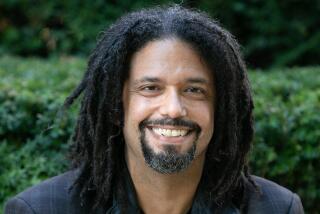Passing of Dempsey Marks End of an Era
- Share via
Only Jim Murray could get it right.
When former heavyweight champ Jack Dempsey died at 87, The Times columnist was moved to write:
“Whenever I hear the name Dempsey I think of train whistles on a hot summer night on the prairie. I think of a tinkling piano coming out of a kerosene-lit saloon in a mining camp. I think of an America that was one big roaring camp of miners, drifters, bunkhouse hands, con men, hard cases, men who lived by their fists and their shooting irons and the cards they drew. It was the America of the Great Plains buffalo, the cattle drive, the fast draw, the jailhouse dirge. America at High Noon.
“More than a man died with Dempsey. He took an era with him. Dempsey came out of the core of the America that had Buffalo Bill, Kit Carson, Billy the Kid, Ned Buntline, Butch Cassidy, the Sundance Kid, Wyatt Earp, Bat Masterson, Wild Bill Hickok and the man who shot Jesse James, men who carried their lives in their saddles and their law in their holsters. Dempsey was part of our heritage like Dan’l Boone, Davy Crockett or Honest Abe. Dempsey came out of covered-wagon America. He reinforced our image of ourselves, this black-browed, curly-haired, bronze young giant with fists like paving bricks and the savage fighting style of a recently uncaged and hungry panther.”
Dempsey learned to fight in the last years of the American West’s era of mining camps and railroad gangs. He fought in saloons, earning a few dollars when bartenders would pass the hat.
Fans can still visit Dempsey’s boyhood home at Manassa, Colo., and watch videos of his historic battles with Jess Willard, Georges Carpentier and Gene Tunney.
But they can never truly acquire a sense of his life in Colorado, learning to fight and survive in mining towns like Durango, Cripple Creek and Steamboat Springs, working as a peach-picker or, as in the case of Telluride, in 1913, as a bordello dishwasher.
He lived in New York in his last years, and was often seen walking about with his cane, in his East Side neighborhood. He cheerfully greeted passersby, who often approached him by saying, “Hey, Champ!”
*
Also on this date: In 1937, the Dodgers ended Carl Hubbell’s 24-game winning streak with a 10-3 win at the Polo Grounds. It’s still the major league record for consecutive wins. . . . In 1935, Babe Ruth--with the Boston Braves--played his final major league game. In his final at-bat, against the Phillies’ Jim Bivin, Ruth grounded out to first baseman Dolph Camilli.
More to Read
Go beyond the scoreboard
Get the latest on L.A.'s teams in the daily Sports Report newsletter.
You may occasionally receive promotional content from the Los Angeles Times.










